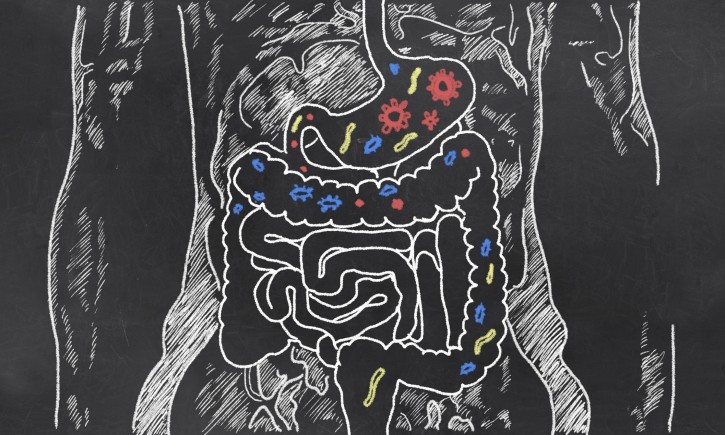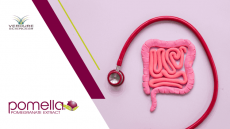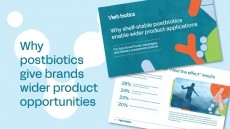Covid complications: synbiotic may lower risk of adverse outcomes in the vulnerable

In addition, the subjects reported significantly improved sleep quality, skin health, and mood, whilst improving gut population levels of the beneficial Bifidobacterium strain.
“To the best of our knowledge, this is the first intervention trial showing that a novel microbiome formula, SIM01, could reduce adverse health outcomes, improve quality of life, and restore gut dysbiosis among elderly subjects and patients with type two diabetes during the COVID-19 pandemic,” the Chinese researchers assert.
They highlight that their findings may “provide significant societal implications for strategies that could protect these vulnerable individuals”, preventing any future adversities in response to widespread infections.
Covid complications
The COVID-19 pandemic represented a significant threat to public health, resulting in a population-wide risk of morbidity and mortality due to developing further complications.
Specific groups were noted to have a heightened risk, including those with diabetes and elderly individuals, resulting from an increased susceptibility to infection. This has been attributed to an altered innate immune function associated with these groups, characterised by a heightened proinflammatory response paired with a low adaptive immunity.
Furthermore, it was established that patients aged 65 and above had a 23-fold increased mortality risk, compared to younger individuals. In addition, it has been noted that gut dysbiosis is a common theme within these groups.
Following the increasingly established importance of the microbiota for overall health, as well as for immunity, there has been an increased interest in the study of probiotics in heightening immune response.
The researchers previously investigated the effect of the synbiotic SIM01 in a pilot study, which resulted in an enhanced immune response to the SARS-CoV-2 infection, whilst regulating proinflammatory markers and gut dysbiosis.
To build upon the validity of this research, the scientists continued to conduct the present large scale Immune Microbiome Product Against COVID infection (IMPACT) study to assess the efficacy of SIM01 in reducing the adverse health outcomes during the pandemic.
Study
The double-blind trial took place within a university centre in Hong Kong, utilising 453 subjects either aged 65 and over or with type 2 diabetes. The participants were randomised in a 1:1 ratio and administered SIM01 or the vitamin C placebo over a period of three months, within one week of receiving the first dose of the COVID-19 vaccine.
The SIM01 synbiotic consisted of the three Bifidobacterium species of B. adolescentis, B. bididum, and B. longum at a dose of 20 billion CFU per day, as well as the prebiotics of galactooligosaccharides, xylooligosaccharide, and resistant dextrin.
It was noted that the occurrence of adverse health outcomes was significantly lower in the SIM01 group, when compared to the placebo group at both follow up periods of one (6 vs. 25) and three months (0 vs. 5).
Specifically, subjects noted a significantly improvement in sleep quality (53 vs. 22), skin condition (18 vs. 8), and mood (27 vs. 13).
In addition, the subjects receiving the synbiotic had greater levels of the beneficial Bidifobacterium strain in the analysed faecal samples, as well as butyrate-producing bacteria.
Outlook
“SIM01 reduced adverse health outcomes and restored gut dysbiosis in elderly and diabetes patients during the COVID-19 pandemic,” the report concludes, emphasising the potential of synbiotic interventions within these vulnerable groups.
Regarding the potential causes of increased health adversities within these groups, they explain: “One of the reasons for the impaired immune response was due to the depletion of certain beneficial species within their gut microbiota, particularly B. adolescentis.”
The study highlighted that the synbiotic was also observed to improve this species of B. adolescentis, suggesting its ability to reverse gut dysbiosis.
However, longer term studies are required to assess whether these alterations are sustained to further establish the required dosage to meaningfully impact these populations in the future.
Source: Nutrients
https://doi.org/10.3390/nu15081982
“Effects of Gut Microbiome Modulation on Reducing Adverse Health Outcomes among Elderly and Diabetes Patients during the COVID-19 Pandemic: A Randomised, Double-Blind, Placebo-Controlled Trial (IMPACT Study)”
by Martin C. S. Wong, Lin Zhang, Jessica Y. L. Ching, Joyce W. Y. Mak, Junjie Huang, Shilan Wang, Chris K. P. Mok, Angie Wong, Oi-Lee Chiu, Yee-Ting Fung, Pui-Kuan Cheong, Hein-Min Tun, Siew C. Ng and Francis K. L. Chan











